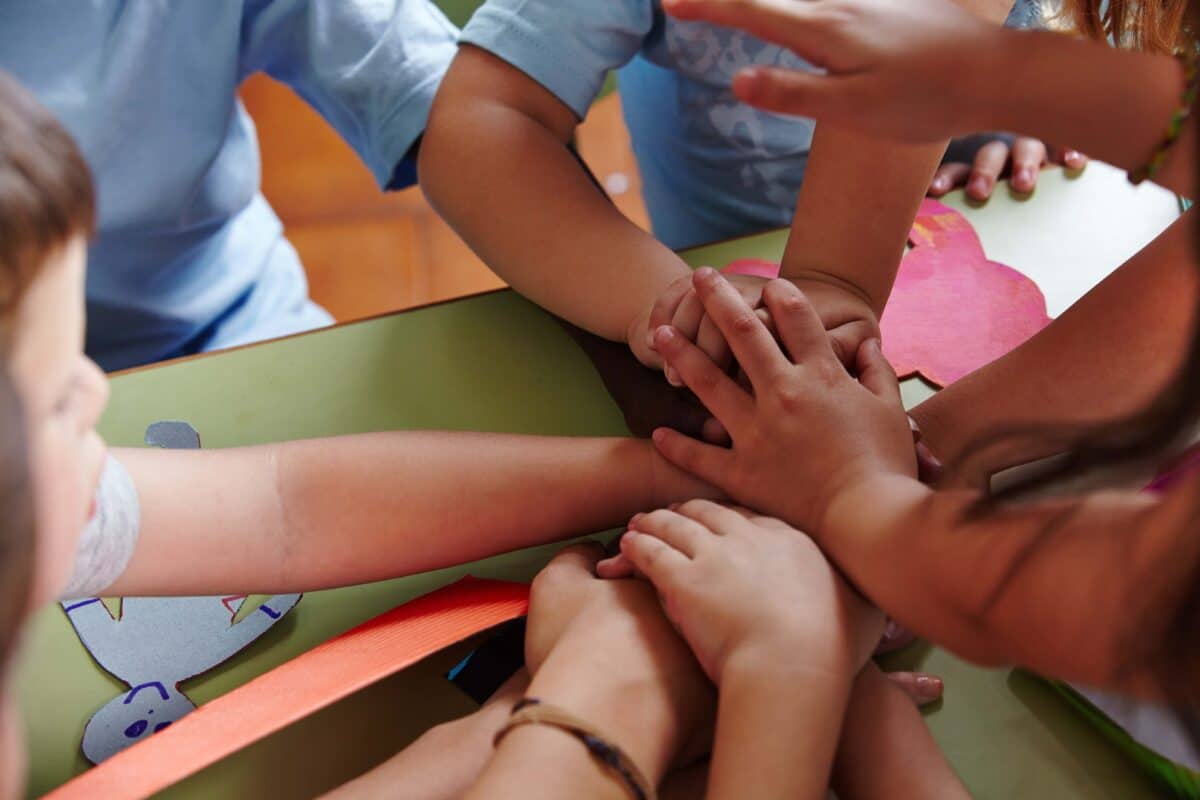A few Sundays ago, we were playing a game – not a very complicated game just a silly one using resources I had easily to hand. It featured a rubber ball (given away by a local DIY store to mark its opening) and some paper cups (stolen from the tea and coffees). We sat in a circle on chairs, bouncing the ball to each other and trying to catch it in our cups. This was harder than it sounds but we put some pretty good runs together, getting into double figures several times. Most importantly there was lots of cheering, lots of laughter and everyone was included and joining in.
Playing games is something that I’ve rather come full circle on: there was a time a few years ago when there would be none and I would have preferred to focus the time on stories and reflection. However, over time they have crept back in and thinking about it this is probably a good thing.
I don’t really use games to make a point or introduce a theme; they have returned to our sessions just to be fun. One of the most important parts of good children’s work is building community and we’ve found that having fun together with some silly games has deepened relationships and created some shared memories that we all come back to and smile about. I’ve spoken many times about how crucial the ‘drink and a biscuit’ bit of your group is, and now games have become an extra element where we can have fun together and build our community.
As ever while playing games we’re always thinking about how to do this really well, reflecting about what went well and why and trying to keep improving. With that in mind here are a few hints and tips we’re learning along the way.
Don’t play real sports like football
This tip is as old as children’s work itself (possibly). If you play football then the kids who like football will want to play every week and will ask and ask and ask, while those who hate football won’t want to come anymore. I’m always looking for games that give everyone a chance and don’t give an advantage to the kids who might have played it before. That was the joy of catching balls in cups, everyone had a chance but no one was well practised in the art.
Join in and set the atmosphere
Another advantage of simple games is that we can join in rather than referee. By joining in you can set the spirit in which the game is played by laying aside your embarrassment and being Captain Enthusiasm. Lead the cheering when anyone succeeds, encourage people trying and ‘Ooh’ and ‘Aah’ at the near misses. All of this will make the game immediately more exciting and create a bit of atmosphere around it, lifting your simple game into some better without having to make it more complicated.
Play cooperative games
Like a lot of our groups I have a couple of behaviour issues that I have to keep an eye on when we’re playing games. First, we have a few sibling combinations where, if they are on the same team, any negative issues are blamed on their sibling and, if they are on opposing teams, they tend to try to kill each other (in a nice way, of course). We also have couple of kids who just tend to overreact to winning or losing and can make the games both rubbish and scary for everyone else. If this were a sports’ club, we would have to work on this but as we’re a Sunday School we solve this with cooperative games. Games where we all contribute to the success of the group generally solve this and create a much more positive space.
What have you learnt when playing games with your group? Share your thoughts on Facebook or Twitter!
